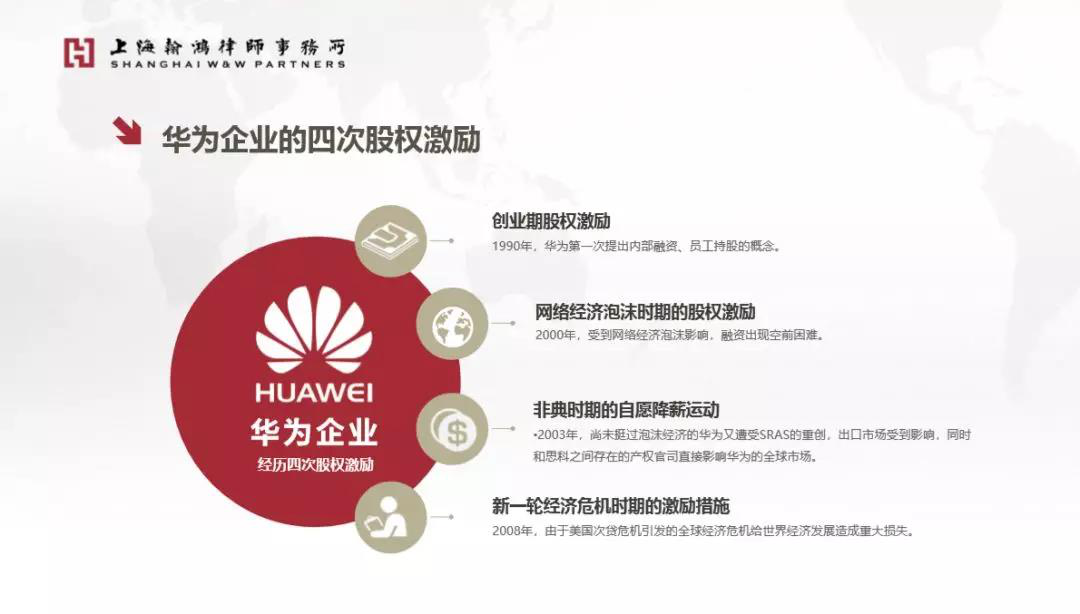
The legal seminar on "Equity Incentives for Entrepreneurial Enterprises" was successfully held!
2019-07-12Under the new economic situation, how can Internet-based startups create favorable talent models? Can successful equity incentives be replicated? Is equity incentives the best way to motivate employees and how risky is it?
On the afternoon of July 10th, Shanghai W&W Partners and Xuhui Software Park jointly held a small salon with the theme of “Equity Incentives for Entrepreneurial Enterprises”.

At the beginning of the salon, through the interpretation of the model of successful domestic equity incentives: Alibaba option grant and Huawei virtual restricted stock employee incentives. Cai Junyu pointed out that equity incentives vary from company to company and cannot be replicated. Usually, the equity incentives that are suitable for the stable development of enterprises are tailor-made, and they are also the most costly and risky incentives.


Through the interpretation of equity incentives at the overall and legal levels, equity incentives for entrepreneurial firms are not the most beneficial stable approach. Often, the motivated object, due to the information asymmetry obtained in the later period, the sense of belonging is not strong, there is no real power, and the incomplete establishment of the exit mechanism, etc., will disrupt the overall planning of the enterprise. For entrepreneurial companies, equity incentives need to be treated with caution.
In the final question and answer session, Cai summed up the service cases for a long time and made a unified reply on how to enhance employees' confidence in the company and the status quo of some corporate equity incentives. Based on the content of the question and answer, the effective incentives for entrepreneurial enterprises to enhance their employee’s sense of belonging, enhance the company's internal corporate culture, and strengthen their employee’s performance, will be the main factors that attract talents, eliminate mediocrity, and strengthen the team.




 公众号
公众号 客服微信
客服微信